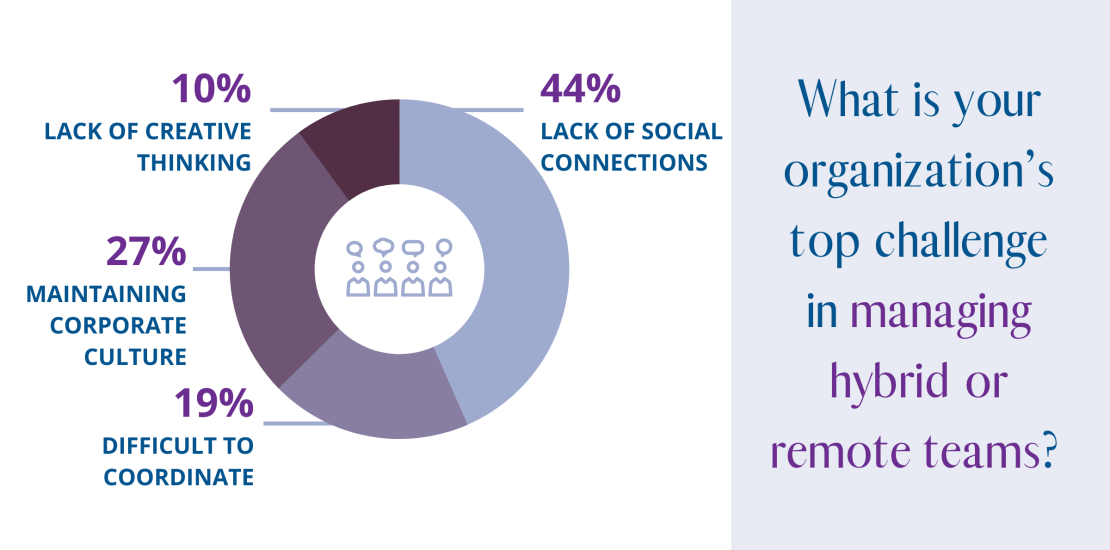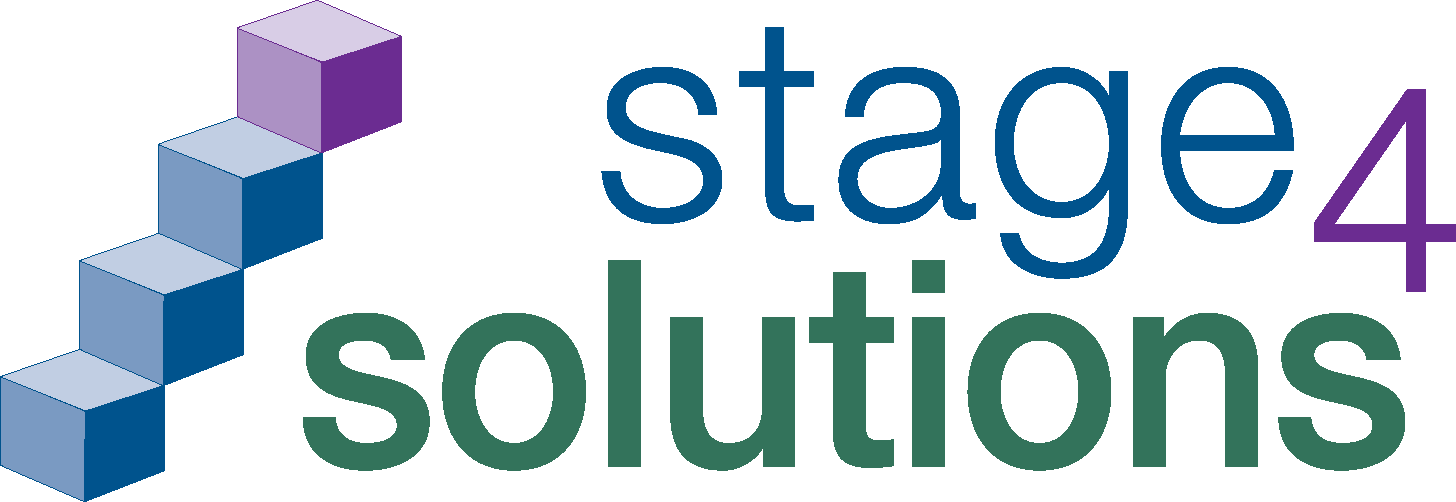Top Challenges in Managing Hybrid or Remote Teams
- May 23, 2022
- Posted by: Niti Agrawal
- Category: Blog

In the past few years, the workplace and the preferences of the workforce have changed drastically. According to a recent survey by Accenture, 83% of workers prefer a hybrid work model. This is a significant change considering 90% of the workforce was onsite prior to COVID. Another study uncovers that the ability to work remotely increases employee happiness by 20%. However, despite its growing popularity, remote/hybrid work can bring challenges. To better understand these challenges, we polled our community for their insights.
Here are our survey results:
What is your organization’s top challenge in managing hybrid or remote teams? (Single answer)
- Lack of social connections 44%
- Maintaining corporate culture 27%
- Difficult to coordinate 19%
- Lack of creative thinking 10%
According to our survey results, the top challenge is the lack of social connections. It does not come as a surprise. Collaboration platforms such as Zoom or Microsoft Teams are key to keeping us feel connected but they are not enough. Feeling connected to the work, organization, its mission and colleagues all play a crucial role in employee engagement and happiness, ultimately contributing to an organization’s success. A new study revealed that almost 60% of employees would consider leaving their job unless they felt connected at work. Business leaders are now under pressure to address connection gaps and create environments where employees feel socially connected. Every connection counts and even implementing the smallest changes such as conducting frequent employee feedback surveys, having 1 on 1s and fun virtual meetings can have a big impact on employee engagement.
The second biggest challenge is maintaining the corporate culture. In a remote/hybrid work setting, establishing trust and accountability is fundamental. Setting clear expectations around project goals, work hours and response time, and ensuring everyone including leaders adheres to those parameters is a good way of handling potential conflicts. Providing the right technology and tools for collaboration, prioritizing employee wellbeing, “knowing” each employee and understanding their goals, and embedding company values into every aspect of work from recruiting to marketing and sales are all helpful practices to maintain corporate culture.
According to the survey results, 19% of respondents are experiencing difficulties in coordinating. This challenge is often faced by large teams that need frequent team collaboration and interaction. With the help of various communication tools and technologies, it is possible to coordinate with team members; however, there is no substitute for face-to-face meetings and interactions. Lack of coordination may lead to communication gaps and lack of visibility, creating difficulties in decision-making and execution of plans. Daily stand-ups and maintaining clear and frequent communication within the team are good practices to prevent coordination issues.
Lack of creative thinking comes last as a challenge. For some employees, creativity comes from their brainstorming sessions with their colleagues in meeting rooms. However, Scientific American brings a different perspective and suggests that remote work in fact can be better for innovation than in-person meetings, and virtual brainstorming creates the maximum number of novel ideas, gaining an innovation advantage.
Remote and hybrid work is here to stay, so organizations must adjust to the new reality. Historically, many organizations built workforce policies and leadership practices around the onsite workforce, and they must now rethink and revise those practices and adapt to new approaches and strategies. Strong leadership and efficient team management play a major role in overcoming these challenges and converting them into opportunities to create a happier and more efficient workforce.
What are your challenges when managing hybrid/remote teams? Please share with us!

